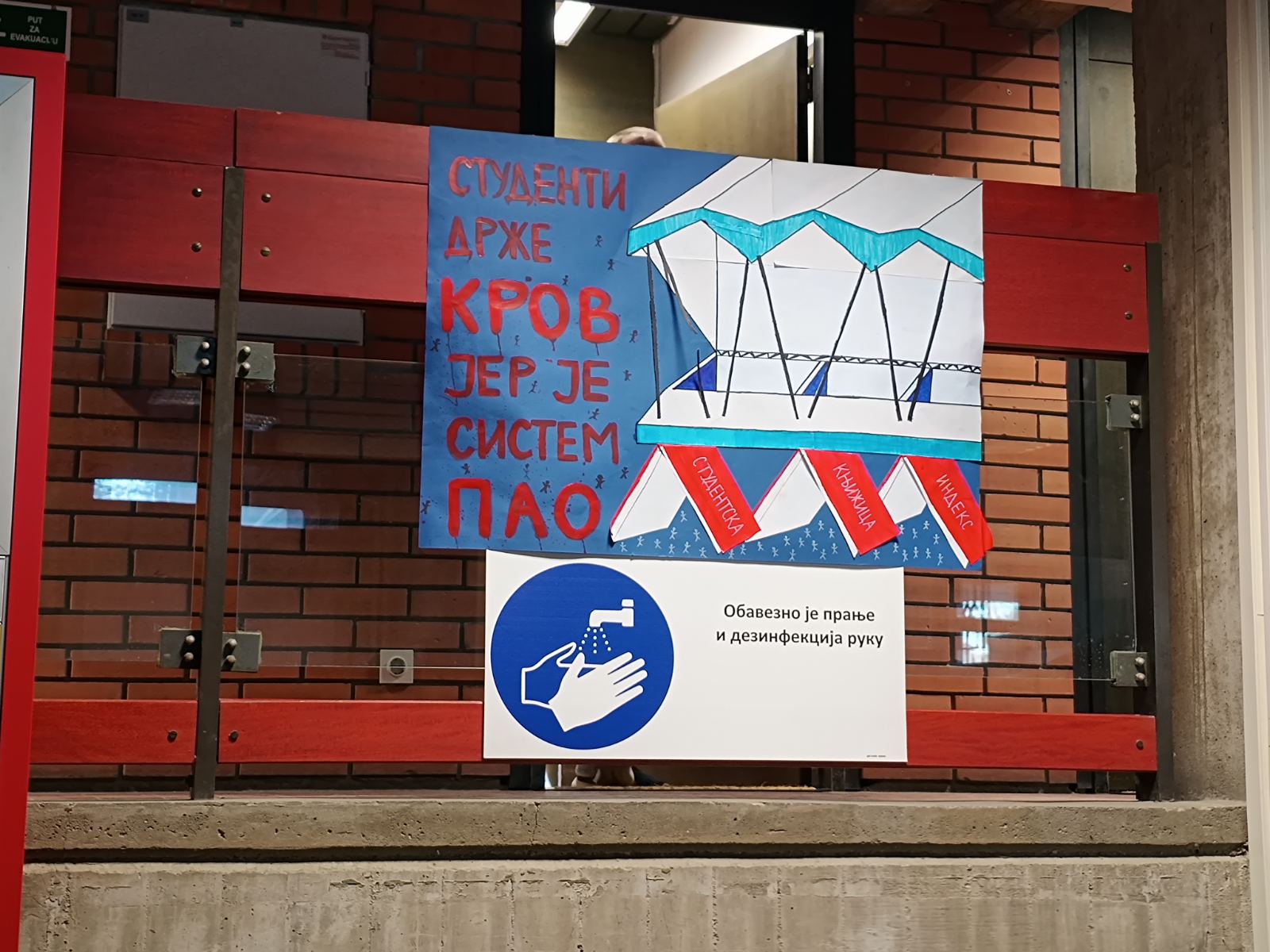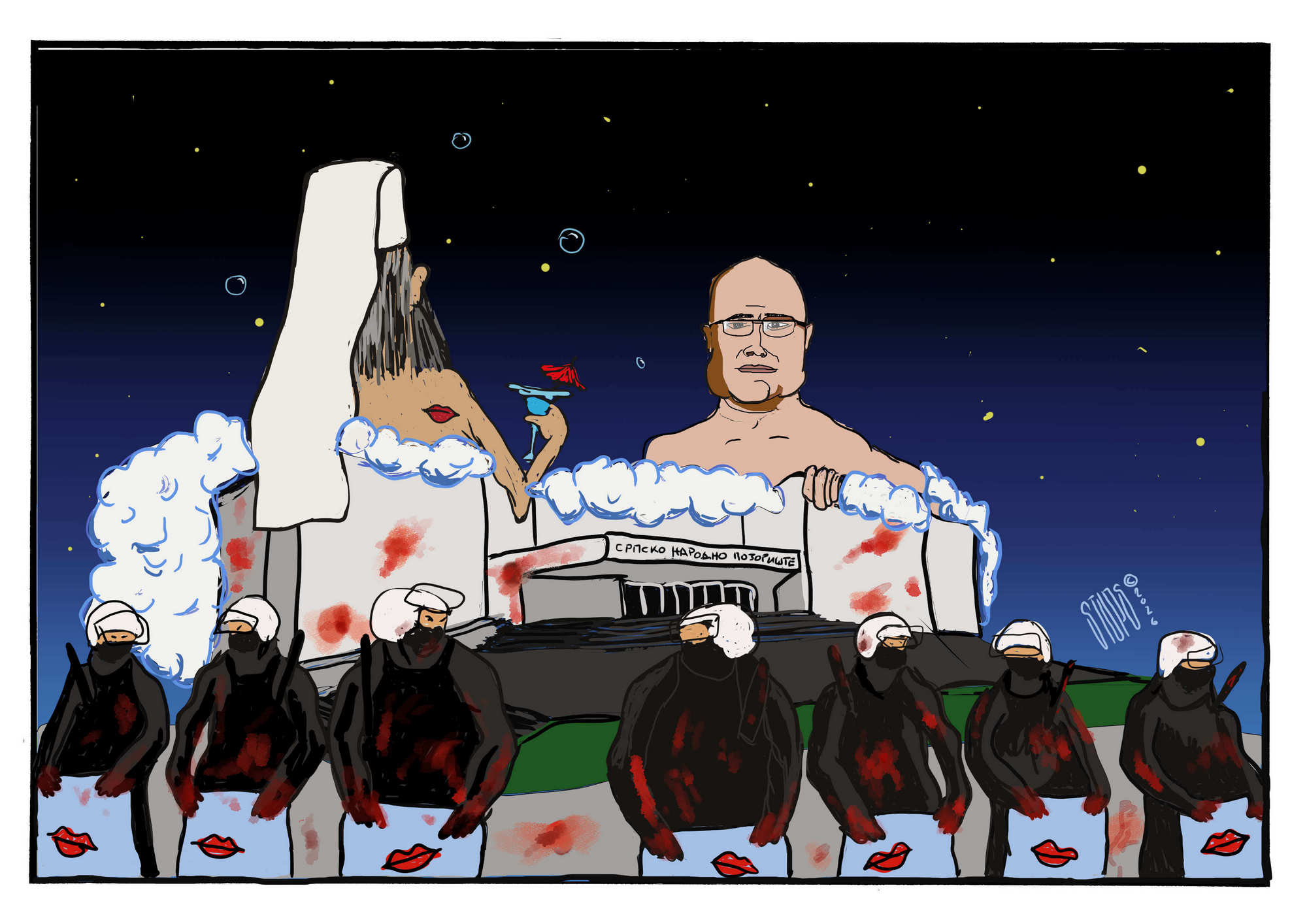
 When in June 2008, the AP Vojvodina Assembly decided to transfer the foundation rights on the print media in minority languages to the minority national councils – it provoked many controversies. Before all, as was pointed out, it was contrary to the Law on Mass Media, which particularly forbids either state or territorial autonomies to be founders of newspapers and the same includes legal person/entity if being financed from the public revenue, which actually refers to the aforementioned national councils. Therefore it was pointed out that these national councils in this case are only transition between state and press, so that state continues not only to finance these media but it also influences their editorial policies, which is contrary to regulations as provided by the Law on Mass Media actually intended to avoiding such situation.
When in June 2008, the AP Vojvodina Assembly decided to transfer the foundation rights on the print media in minority languages to the minority national councils – it provoked many controversies. Before all, as was pointed out, it was contrary to the Law on Mass Media, which particularly forbids either state or territorial autonomies to be founders of newspapers and the same includes legal person/entity if being financed from the public revenue, which actually refers to the aforementioned national councils. Therefore it was pointed out that these national councils in this case are only transition between state and press, so that state continues not only to finance these media but it also influences their editorial policies, which is contrary to regulations as provided by the Law on Mass Media actually intended to avoiding such situation.
On the other side, the Provincial administration claimed that an explicit legal basis allowed supporting further on the media in minority languages due to its obligations to finance dissemination of information in the minority languages. In this administration referred to the federal Law on Protection of National Minorities Rights and Freedom, actually the Law in effect in then already former SRY. In its interpretations it appeared that implementation of this Law in the given case was – unconstitutional! Unsatisfied with this decision, some minority media news offices decided to lodge a complaint to the Constitutional Court in order to get its judgment on constitutional basis of such a decision. Most likely the Constitutional Court, which in the state of Serbia serves more to additionally deepen the problem in question then solve it, has never dealt with the issue and one may conclude that the complaint was withdrawn if in the meantime journalists and editors in these media got convinced that this decision on transfer of foundation right might offer some comparative advantages.
Apart from this formal-legal issue, a series of practical confusions and problems emerged as well. News offices of “Ruske Slovo”, “Libertatea” and “Hlas Ludu” realized that further future of their newspapers would come into question if the AP Vojvodina Assembly ceased to be their founder. In this they were joined by the “Magyar Szo”’s strike board. Subsequently various turbulences ensued in news offices connected with appointing editors and formulating the editorial policies. For instance, internal conflicts or resistance in news office in Pančevo’s “Liberatea” was for days filling columns in Vojvodina’s and Serbian media. The question was whether transferring the foundation rights to national councils would endanger the freedom of expression i.e. whether these media would have enough space to keep up a critical approach towards the minority board and minority elite, which should be one of elemental characteristics of the right on freedom of information of national minorities representatives. Along with all these problems we have once again been reminded of the fact that the minority media already for a long time face a chronic staff problem because, as it is known, younger and more educated part of population generally look forward to flee from here “without looking back” and this they frequently realize.
According to some views, a storm in the minority media calmed down when journalists and editors alike realized that essentially nothing would change i.e. that transfer of foundation rights was in effect the method of maintaining status quo. Therefore, the Provincial government, in the formal and legal aspects, had more or less respected its legal responsibility but what basically remained unspecified was what would happen with the media when being “de-stated” – separated from governmental and state bodies (though some claim that state is the worst possible owner). Status quo also includes inheriting some of benefits granted to editors and journalists in that period when ‘the social self-government flourished’. Besides, it doesn’t require any struggle for the market-positioning.
This additionally complicates situation considering an unenviable position of these media, given that they can be consumed by a relatively small number of people, in the struggle for market.
All in all, the decision brought by the Provincial government appears not to be a solution but rather a lack of solution. The representatives of the Provincial government proved the above having stated that they actually had no any strategy for the final solution of the status of print media in minority languages, as if not being aware that this temporary solution can be nothing else but – transient! This complex situation is additionally complicated by the fact that Serbia still hasn’t got (and who knows when it will get!) the law regulating the position of members of the national minorities, meaning that the national councils actually function in a legal vacuum.
A surface survey of already existing solutions that grant the survival and successful functioning of the media in minority languages in other countries can offer some similar applicable solutions here. As these solutions suggest the foundation rights should not be in hands either of state or some other institution financed from the budget. In addition to standard support of the private media in the minority languages on the basis of open competitions announced by the relevant ministry or secretariat, it is also possible to establish the special national funds for support of work and development of these media. Electronic media in the minority languages in private ownership are not the theme of this article but it should be said that their work can be also financed through subscriptions to the media public service. There are some other solutions by which state can ensure survival of the media in minority languages and such state support can be also improved via bilateral agreements with the mother states of minorities.
However, all above would be possible presuming that state and state bodies function normally, that there are regulations respected by all, that there is a clear strategy and good intentions. As since 2004 we have been witnessing a series of retrograde processes, no wonder that some objections on decisions brought by the Provincial parliament today appeared as objections raised in the time of optimism, in time when there was still thought that Serbia once and forever said goodbye to deregulation. In the meantime a series of scandalous media privatization was carried out; in the meantime the Republic Radio Diffusion Agency brought a whole bunch of strange, senseless decisions among which were some that directly endangered information in minority languages. (We can take as an illustration only the latest example and a scandalous decision brought by RDA not to allocate frequency to Stara Pazova’s “Radio Pegaz”, which broadcast program in the Slovak language and to “sell” its hitherto frequency to the Belgrade “Radio Sky” whose prevailing activity is – looking for lost persons and protection!). In the meantime it has been confirmed that Serbia not only has no need for the media in minority languages but neither it needs minorities as such – to wit, a fifth wheel!
All aforementioned has contributed to the present position and, from time distance and given the general chaos on the media market, not really good decision of Vojvodina’s government, which in practice has exposed many defects, but appears to be the least grim solution at the moment! In this way the media under control of national councils at least will survive, such as they are! And the question remains whether anybody in this country who is in charge of bringing important decisions cares a damn if “Libertatea” or “Hlas Ludu” are being privatized and subsequently – cease to exist!
At the end, however, we may begin to wonder whether the media chaos in which we live – is actually a well organized confusion useful for “fishing in muddy water” (the media privatization was quite profitable to a circle of “nationally aware” tycoons with a bad image, doubtful past and even more doubtful intentions) or just a standard Balkan madness in which the weakest get the worst of it.
(Link)









 STUPS: Paralelni univerzumi
STUPS: Paralelni univerzumi